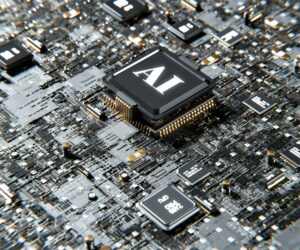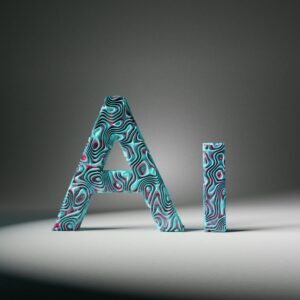The Rise of Artificial Intelligence (AI)
Transforming the Future
Artificial Intelligence (AI) has emerged as one of the most revolutionary technologies of our time. From automating tasks to solving complex problems, AI is reshaping industries and redefining the way we interact with technology. But what exactly is AI, and why is it such a game-changer?
What is Artificial Intelligence (AI)?
At its core, AI refers to the development of computer systems capable of performing tasks that traditionally require human intelligence. These tasks include learning, reasoning, problem-solving, understanding natural language, and even perception. AI systems use algorithms, data, and computational power to mimic cognitive functions.
Applications of AI Across Industries
AI technology has found its way into almost every sector, driving innovation and efficiency. Here are a few notable applications:
1. Healthcare: AI-powered tools analyze medical data to assist in diagnosis, personalize treatment plans, and even predict disease outbreaks.
2. Finance: Fraud detection, risk assessment, and automated trading are just some of the ways AI is enhancing the financial industry.
3. Retail: Personalized recommendations, inventory management, and chatbots improve customer experiences and streamline operations.
4. Manufacturing: Robotics and AI optimize production lines, detect defects, and predict maintenance needs.
5. Transportation: Self-driving cars and AI-powered traffic management systems are paving the way for safer and more efficient transportation.

Benefits of Artificial Intelligence (AI)
1. Increased Efficiency: Automation of repetitive tasks allows humans to focus on higher-level work.
2. Improved Accuracy: AI algorithms can process large amounts of data with precision, reducing errors.
3. Personalization: AI enables tailored experiences in areas like marketing, entertainment, and education.
4. Innovation: AI-driven insights and tools open up possibilities for new discoveries and advancements.
Challenges and Ethical Considerations
While AI offers incredible opportunities, it also poses challenges:
Bias in AI: Algorithms trained on biased data can perpetuate inequalities.
Privacy Concerns: AI’s reliance on data raises questions about user privacy and data security.
Job Displacement: Automation can lead to job losses in certain industries, necessitating workforce reskilling.
Regulation and Ethics: Governing the use of AI responsibly is crucial to ensure fairness and prevent misuse.
The Future of Artificial Intelligence (AI)
As AI continues to evolve, we can expect even more sophisticated applications, from advanced natural language understanding to breakthroughs in healthcare and climate modeling. Collaboration between researchers, businesses, and policymakers will be vital to harnessing AI’s potential for the benefit of society.
To your great success in your online business journey, Bob@Lurnprofit


